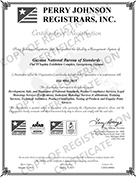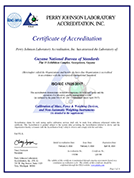The Guyana National Bureau of Standards (GNBS) as the World Trade Organisation (WTO) Enquiry Point for Guyana has been playing a meaningful role in ensuring that businesses involved in the manufacturing and exporting of products are knowledgeable of current standards and technical requirements relevant to trade. However, over the last few months, there has been a notable disruption in production and trade due to the COVID 19 Pandemic worldwide.
In response to the pandemic, the WTO Secretariat published an information note looking at how micro, small and medium-sized enterprises (MSME’s) are being affected by the COVID-19 pandemic. It notes the impact of supply chain disruptions on MSME’s and the extent to which smaller businesses are represented in the economic sectors hardest hit by the crisis.
The report notes that supply chain disruptions can have a particularly severe impact on MSME’s because sourcing from new suppliers or absorbing price increases is more challenging for a smaller firm with limited supply options and capital.
Also, the WTO report looks into a wide range of measures taken by governments to support MSME’s. These include measures to address cash flow issues, expand trade opportunities for MSME’s, and to make them more resilient. According to the report, 44 WTO members had introduced such measures by the end of April 2020.
The note describes how international trade provides MSME’s with opportunities to diversify revenue streams and better navigate the COVID-19 crisis. It also outlines that work at the WTO can support small businesses by promoting the importance of transparency, facilitating the exchange of best practices, highlighting the need for increased access to trade finance, and encouraging the full implementation of the WTO’s Trade Facilitation Agreement.
According to the WTO report, MSME’s are the backbone of many economies, representing 95 percent of all companies worldwide and accounting for 60 percent of employment. Many MSME’s depend on international trade for their activities, either because they export their products through direct or indirect channels, or because they import inputs to manufacture the products that they sell domestically. They are major employers of women and young people, and a key driver of innovation.
The report found that MSME’s are particularly exposed to the COVID-19 pandemic’s economic impact because of limited financial resources and borrowing capacity, and because of their disproportionate presence in economic sectors affected by social distancing measures and transport disruptions. MSME’s are also particularly exposed to trade restrictions on agricultural products.
Where MSME’s are highly integrated into global value chains (GVC’s), supply chain disruptions can create existential risk for MSME importers and exporters, either because of shortages of necessary parts or through shocks to demand. Further, pandemic-related challenges add on to the existing, well-known trade obstacles encountered by MSME’s, and therefore undermine progress towards more inclusive trade.
Some Governments have primarily introduced urgent stimulus and backstop measures for MSME’s, such as liquidity support to address cash flow issues, to preserve jobs and ensure business continuity, as well as measures to expand trade opportunities for MSME’s. A few governments have also introduced measures aimed at developing the resilience of MSME’s and building their capacity to overcome future shocks to demand and supply chains.
To limit the impact of the current crisis on MSME’s and to build their resilience, MSME’s must have better access to regulatory and market information and affordable trade finance, as well as to streamlined customs procedures and requirements. Greater use of digital tools and e-commerce would also benefit MSME’s.
Lastly, the WTO can and will continue to contribute to supporting MSME’s through transparency mechanisms in WTO committees and bodies, as well as in the Informal Working Group on MSME’s. WTO will also continue to facilitate the exchange of good practices in terms of MSME support measures and through full implementation of the Trade Facilitation Agreement, amongst other crucial measures to enhance trade.
Local manufacturers and exporters are encouraged to get familiar with the GNBS WTO Enquiry Point, which continuously offers information that is crucial for trade.
For further information, regarding the work of the WTO Enquiry Point, kindly contact the GNBS on telephone numbers: 219-0065, 219-0066, or 219-0069. You can also visit COVID-19 www.epingalert.org or email wto-tbt.enquiry@gnbsgy.org for more details.







